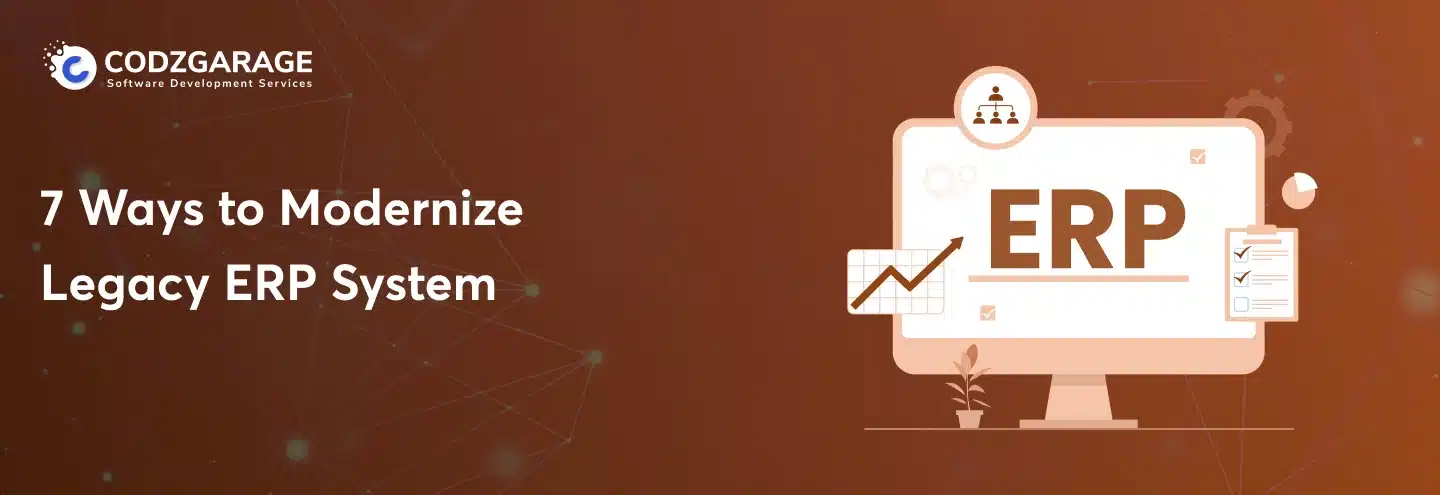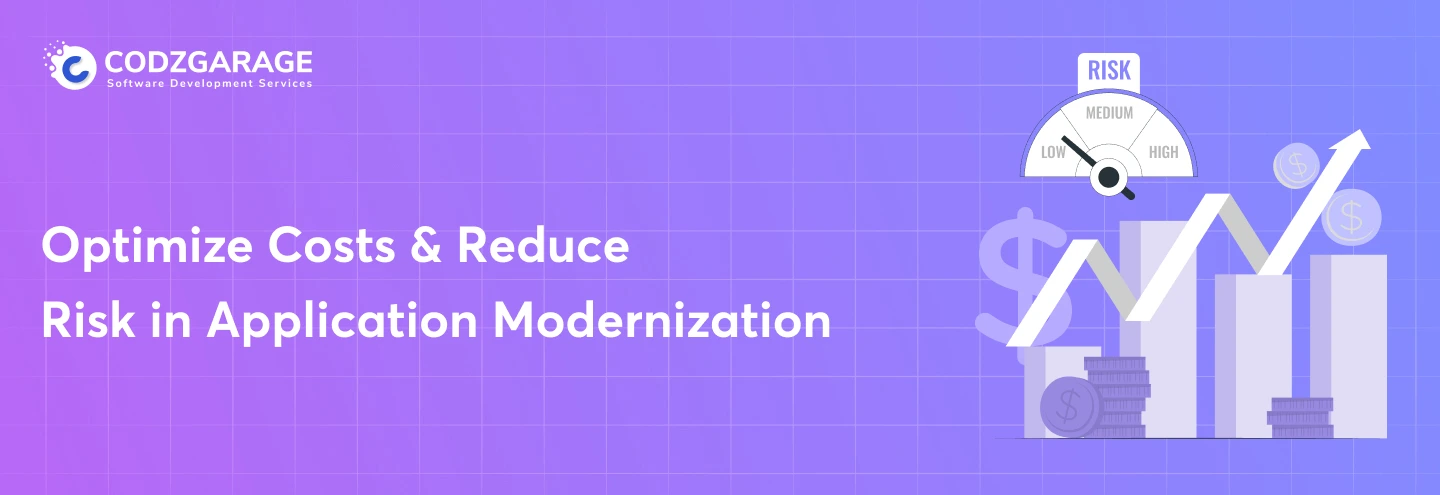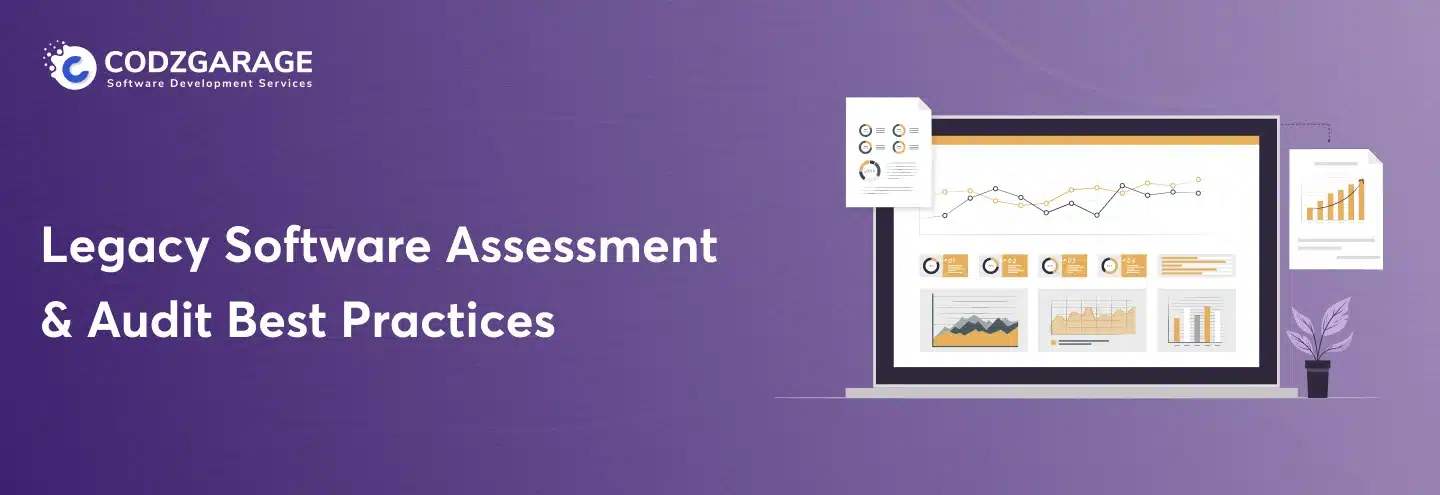Top 10 Signs That Your Legacy System Needs Software Modernization
Do you want to port your desktop, VB6, and VB.NET applications to modern platforms? Or, are you not sure if you need to migrate your legacy software? This blog will help identify both —understand if you need to migrate your applications and port the software to a new platform.
Having retro stuff is a luxury, and you may feel proud of it. What about owning a legacy system? It’s a liability if it is inefficient and fails to deliver profits. And, hence comes, the legacy software migration! But the question is, “How to determine if you need to migrate your legacy system?” we have explained the top vulnerable signs that will help you identify the loopholes and migrate your legacy system.
Undoubtedly, your legacy system was the hero of your business, helping you with all complex challenges. But, the technology evolves, even the mightiest of systems would find themselves wearing an outdated suit of armor. As time passes, the legacy system within your organization does more harm than good. In the fast-paced tech-savvy world, your trusted legacy system needs a modern makeover, and migrating it to the new platform is the best option.
Codzgarage is the leading legacy software migration agency offering clients cloud migration and modernization services worldwide. Contact us today with your projects and get a FREE consultation.
But how do you know if your legacy system needs modernization or migration?
We have suggested the top 10 signs that your legacy system needs modernization and to be empowered with newer, faster, sleeker, and more helpful software. These ten signs are;
1. Slow Performance
2. Compatibility Issues
3. Security Vulnerabilities
4. High Maintenance Costs
5. Lack of Vendor Support
6. Device Dependencies
7. Outdated User Interface (UI) and User Experience (UX)
8. Inefficient Data Management
9. Lack of Mobile Accessibility
10. Inability to Innovate
Let’s explore these 10 signs in detail;
Top 10 Signs That Your Legacy System Needs Modernization and Migration to New Tech Platform
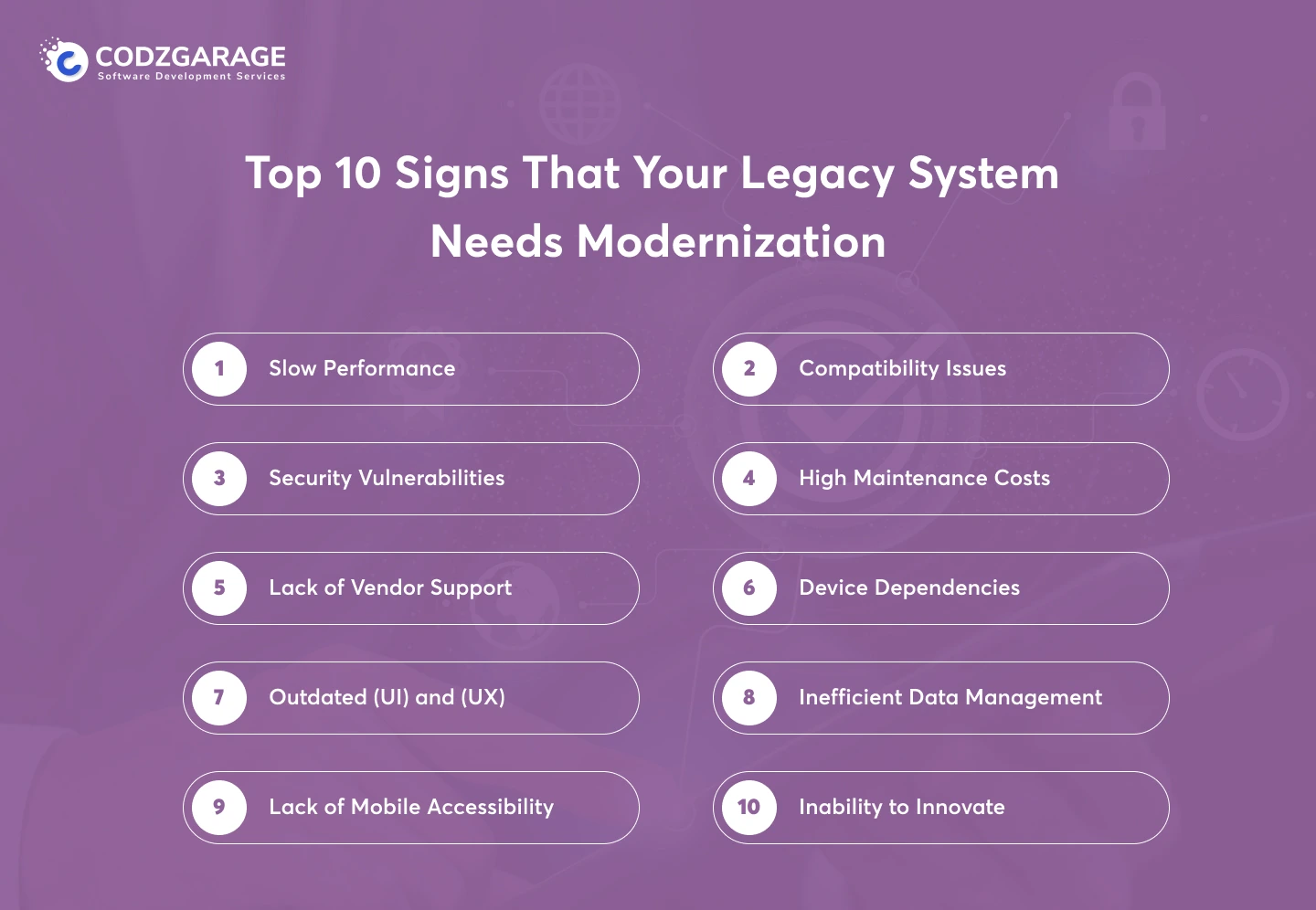
The world is changing fast, and technology is evolving at an equal pace. The application modernization service market is projected to reach $32.8 billion by 2027 with a 16.7% CAGR (2022-2027).
One of the most prominent signs that your legacy system needs to be migrated is “it is inefficient ” and not easily aligned with your current business scenario. There can be various other signs listed here, though all those signs can be well-defined under these 10 points. We have pointed it out for you in the following paragraphs. Now, let’s explore them one by one.
1. Slow Performance: Often Crashes and Fails to Perform
One of the first signs that your system needs migration or modernization is it does not deliver your expectation. The performance is not as expected, and you spend hours performing a single task while your competitors do it in a moment.
Remember the days when your legacy system’s speed was unrivaled? Now, as users demand faster, quicker responses and seamless experiences, the battle for speed intensifies. If your system takes more than 3-7 seconds to load, you are giving your competitors an edge over you.
Pro Tip: Conduct a performance audit to identify bottlenecks. Determine the areas of improvement and consider adopting modern optimization techniques so you get a system with boosted speed and responsiveness.
2. Compatibility Issues: Does Not Integrate with Other Tools
Is your legacy system facing challenges integrating with modern applications and technologies? Integration and interoperability are the most significant issues with legacy software. Compatibility issues can hamper your business’s ability to collaborate effectively. Meanwhile, it can limit data-sharing capabilities.
The need for cross-platform integration is necessary, and migrating the legacy software is the only option left to you. It will not just eliminate compatibility issues but also bestow your organization with various new features and functionalities.
Pro Tip: Prioritize migration to a technology stack that offers seamless integration. For example, migrating VB6 to .NET Core will bestows smooth data exchange and collaboration.
3. Security Vulnerabilities: Data Security at Stack
Legacy software, whether desktop to web applications , remains on the verge of threats. They lack the latest security measures that pose a serious concern for data security.
With Recognizing security vulnerabilities is crucial to safeguarding your business from potential breaches. This is a clear sign that you need to create a clear roadmap to migrate your legacy systems.
Pro Tip: Connect with a reliable instead of reputed legacy software migration agency that implements regular security assessments and updates. Migrating to a modern platform with robust security features enhances data protection.
4. High Maintenance Costs: Drains Resources Like Dragon
Do you have to spend a lot to maintain your legacy systems? Are you not getting satisfactory results even after spending a fortune? Don’t let it drain more; migrate it to the new platform as you get a clear sign that your system needs migration. Migrating the software to the modern platform can slash hefty bills while bestowing you with cost-effective, long-term solutions.
Pro Tip: Compare the long-term costs of maintaining the legacy system with migration expenses. Investing in migration can lead to cost savings and improved ROI in the long run. Besides, expert software migration companies reuse up to 80% of existing code while migrating to a new platform so that it can save time and money.
5. Lack of Vendor Support: No More Updates and Maintenance Support
Does your legacy system feel abandoned? It can be vulnerable too. Using third-party applications may be cost-effective upfront, but not in the long run. Vendors can pull out support, and you may not receive updates and maintenance. If your legacy software is going through the same situation, trust us, this is the right time to migrate to new technologies.
Pro Tip: Research and partner with a reliable software vendor. A reliable partner offers continuous support and updates for the new platform.
6. Device Dependencies: Limits Flexibility and Scalability
Legacy software often relies on other specific devices. In many legacy systems, the software is tightly coupled with particular devices. Let’s simplify this: do your legacy system faces compatibility issue? Is it not flexible? Do you have to invest in costly hardware to maintain it? If you have the answer “YES” to all the questions, you need to migrate your legacy software immediately.
Why play with flexibility or scalability when you can beat the heat just by migrating the software to a newer platform?
Pro Tip: Even though your tech partner will adopt the best legacy system modernization approaches to ensure greater accessibility and user satisfaction, ensure to opt for a device-agnostic solution during migration.
7. Outdated UI/UX: Dissatisfies Users
Are your users not satisfied with your applications? Are they not able to use your applications smoothly? This is a clear sign you need to modernize your application. In this case, if you have only UI/UX problem, you can consider updating the application with UI/UX part only. It’s a cost-effective option as you may have to spend a lot if you opt for upgrading against updating.
Your user is the king in online business, ensuring success. If they are not satisfied with your application’s UI/UX, you need to give serious consideration. When it comes to satisfying your users, an outdated UI and UX can be the villain. Do not let it send negative experiences to your customers.
Pro Tip: Modernize the user interface with an intuitive and user-friendly design. Ensure the software migration agency has a UI/UX team who conducts user testing and feedback sessions to identify pain points and design UI/UX accordingly.
8. Inefficient Data Management: Impacts Decision-Making Process
Data management is crucial for modern businesses. When you struggle to manage and process data, you must identify if it is a system or other reason for the issue. If it is a system, you need to migrate it to a newer platform.
Pro Tip: Consider migrating to a platform with advanced data management capabilities. When you connect with a partner to modernize your legacy system, raise this question.
9. Lack of Mobile Accessibility: Not Compatible with Mobile
Are you able to access legacy software through your mobile phone? Whether it’s your users or your in-house team, if they are not able to access your applications on the go, you are at a disadvantage.
First, if you find this ‘mobile accessibility loophole, it’s a sign that your system needs migration. Second, modernizing the legacy systems to the latest technologies will ensure it is not just mobile accessibility but also accessible across all other devices that your users and team are supposed to use.
Pro Tip: Prioritize responsive design and mobile-friendly features during migration. Stress on mobile accessibility while creating legacy system replacement strategy.
10. Inability to Innovate: Fails to Adapt the Trends
Picture this; you have a desktop application built on VB6 or VB.NET technology. Now, what scope do you have to innovate? The answer to this question will give you a strong reason why modernize legacy systems.
So, if the legacy software fails to adapt to the trends, especially the emerging technologies, your business will suffer. You cannot innovate, so you cannot stay competitive.
Pro Tip: Think about opting for a flexible and scalable platform that allows easy integration with cutting-edge technologies. You can stay ahead of the competition, drive innovation and keep your business thriving.
How Codzgrage Helps with Your Legacy Software Migration Needs?
We are a top-rated legacy software migration company offering clients reliable and trusted software migration services worldwide. Whether you want software migration consultancy or to migrate your software to a newer platform, we can help.
We migrate legacy systems with accountability, ensuring your system will be migrated without interrupting your current business process, data, and flow. Our team of 50+ experts understands every nitty-gritty of software migration. Codzgarage stands for quality, cost-effectiveness, and reliability.
Final Thoughts
World’s top enterprises and old businesses are still running on legacy systems. Some urgently need modernization, while others can wait, but how will you know if you need to migrate your legacy systems? I hope this article helps.
By ignoring legacy systems modernization, you put your business at risk. Migrate your legacy systems now.
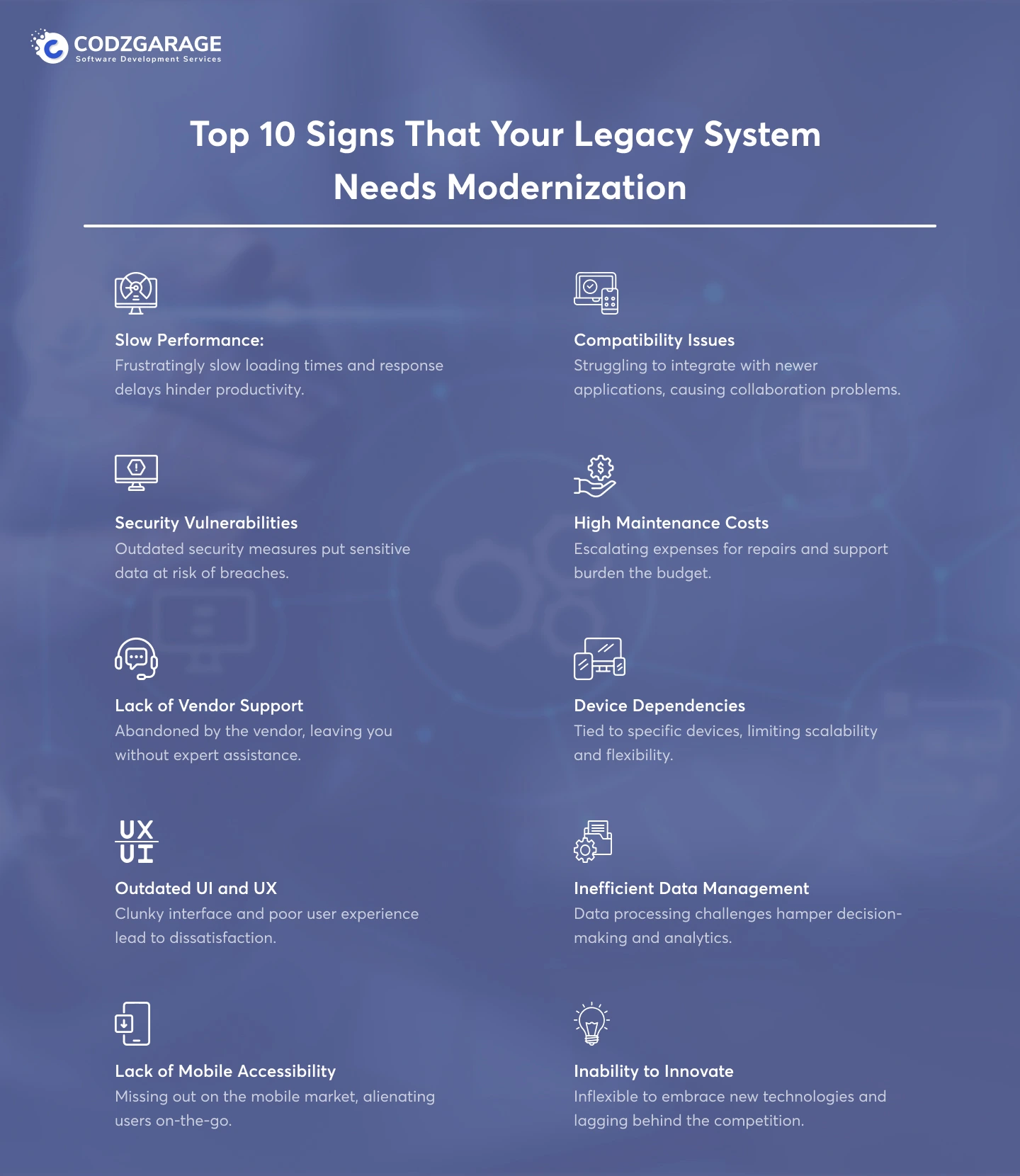
Want to
Migrate Your Legacy ApplicationsHow We Help
- Find gap
- Assess requirement
- Migrate and deployment




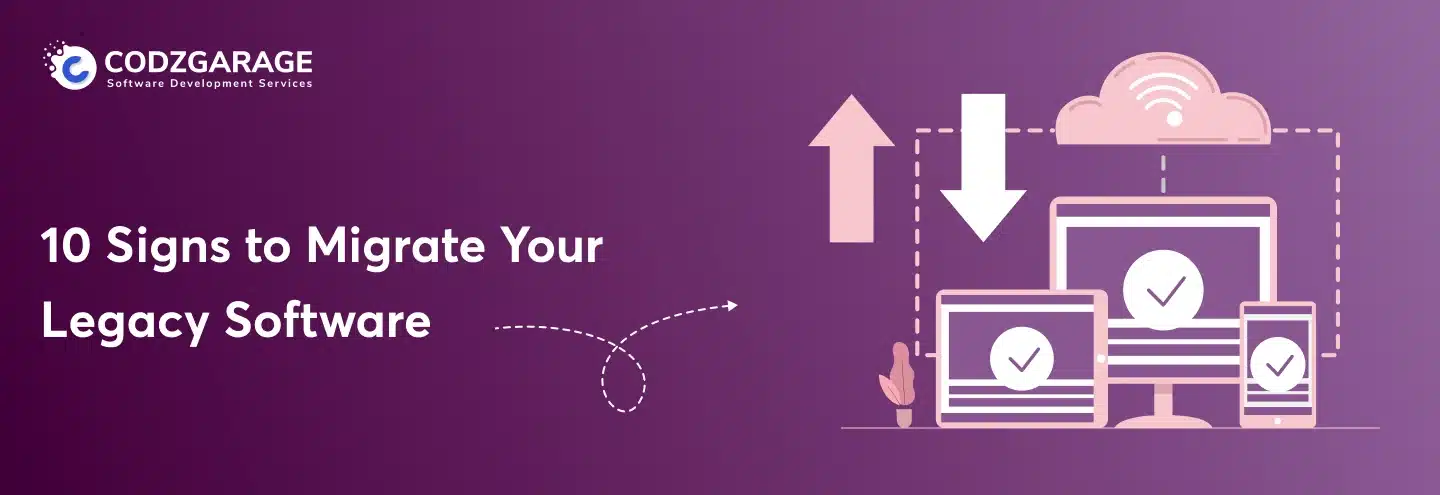

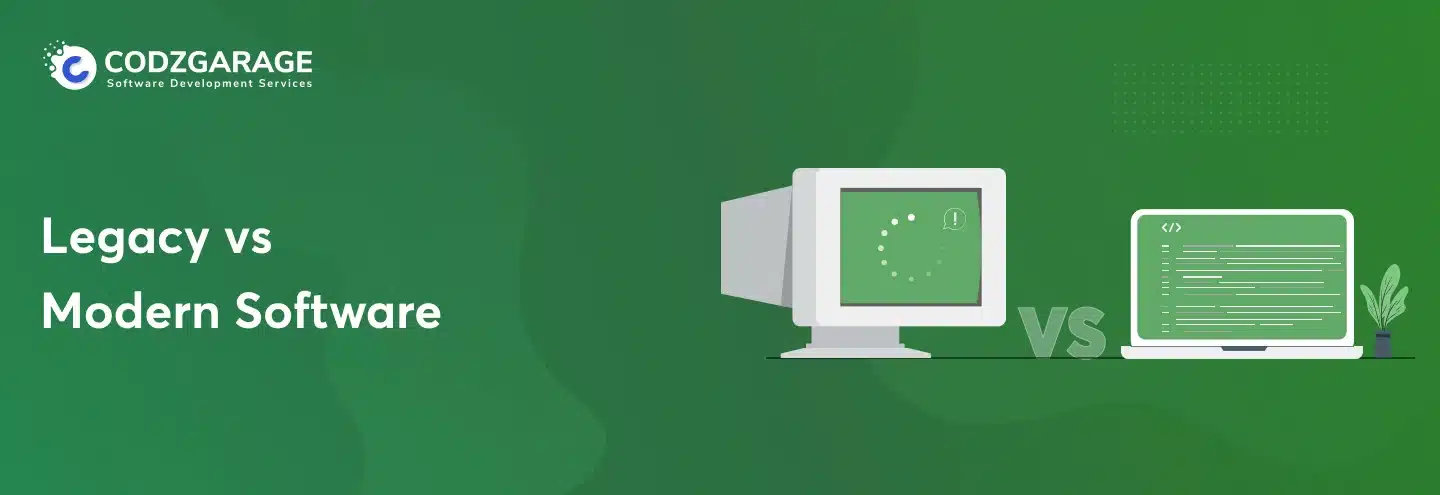
 Paresh Kapuriya
Paresh Kapuriya 